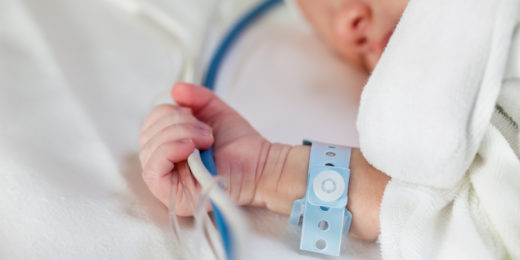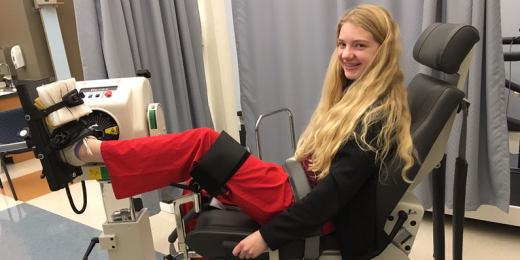A team of former Stanford Biodesign students developed a device to protect and stabilize umbilical cord catheters in newborn babies.
Stanford Biodesign develops device to protect newborn babies from infection
A team of former Stanford Biodesign students developed a device to protect and stabilize umbilical cord catheters in newborn babies.




